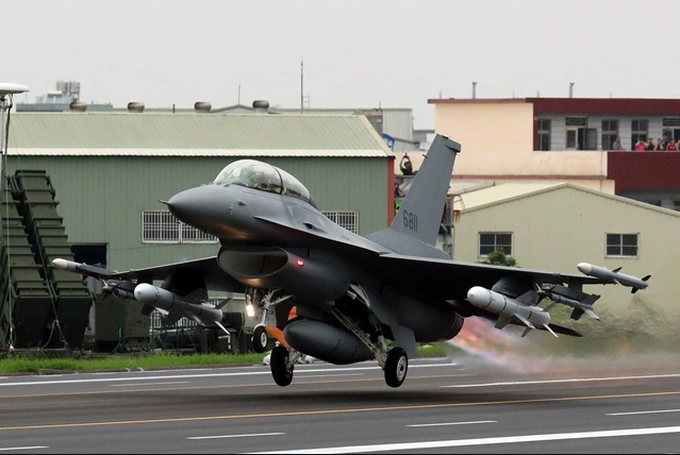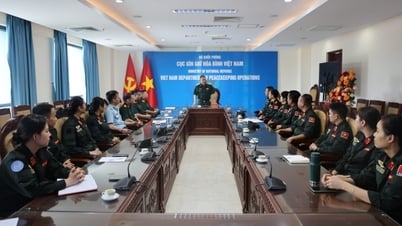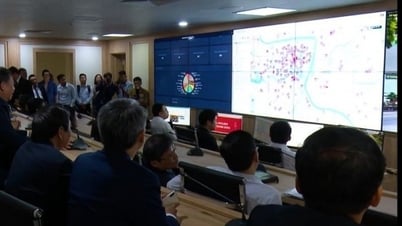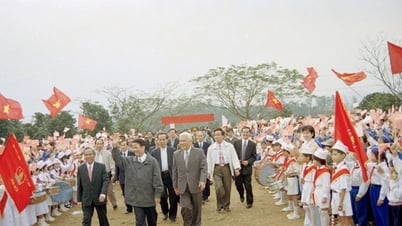
An F-16V aircraft (Photo: EPA-EPE)
Taiwan's defense minister Chiu Kuo-cheng announced on May 4 that the delivery of 66 new F-16V aircraft from the United States has been delayed due to supply chain disruptions. Chiu said Taiwan is working to minimize losses and "make up for shortcomings."
In 2019, the US approved an $8 billion sale of Lockheed Martin F-16 fighter jets to Taiwan, a deal that would bring the island’s fleet of F-16 fighters to more than 200, the largest in Asia.
Under the deal, Taiwan converted 141 F-16A/B aircraft into F-16Vs and ordered 66 new F-16Vs. The new F-16Vs are equipped with new avionics, weapons and radars to better counter the Chinese air force, including the J-20 stealth fighter.
Taiwan said the first new F-16Vs were scheduled to be delivered in the fourth quarter of 2023, but were delayed to the third quarter of 2024 due to supply chain disruptions during the Covid-19 pandemic.
Taiwan has asked the US to “make up for the shortfall,” including speeding up the transfer of spare parts for the current fleet, Chiu said.
Since last year, Taiwan has complained about US delays in delivering weapons, including Stinger air defense missiles, as manufacturers diverted supplies to Ukraine in response to Russia's military campaign.
During a visit to Taipei in April, US House Foreign Affairs Committee Chairman Michael McCaul said he was doing everything possible to expedite arms transfers to Taiwan.
In addition to fighter jets, the US Department of Defense announced on April 7 a $1.17 billion contract to sell land-based Harpoon anti-ship missiles to an unnamed customer. US news site Bloomberg revealed that the "mystery customer" of this deal is Taiwan.
China's Foreign Ministry warned that the US arms sale to Taiwan undermines China's national security interests and harms China-US relations as well as peace and stability in the Taiwan Strait.
Despite Beijing’s warnings, Washington remains Taiwan’s main supplier of weapons and military equipment. China still considers Taiwan an inseparable territory, ready to annex it by any means, including the use of force.
In February, China's Ministry of Commerce added two US defense giants, Raytheon Technologies and Lockheed Martin, to its list of "unreliable entities." Being included on the list means that US companies cannot engage in import and export transactions involving China.
Source




![[Photo] Top players gather at the 2025 Nhan Dan Newspaper National Table Tennis Championship](https://vphoto.vietnam.vn/thumb/1200x675/vietnam/resource/IMAGE/2025/5/23/9ad5f6f4faf146b08335e5c446edb107)

![[Photo] Anh Hoang - Dinh Duc successfully defended the men's doubles championship of the National Table Tennis Championship of Nhan Dan Newspaper](https://vphoto.vietnam.vn/thumb/1200x675/vietnam/resource/IMAGE/2025/5/23/d6ab3bcac02c49928b38c729d795cac6)























































































Comment (0)